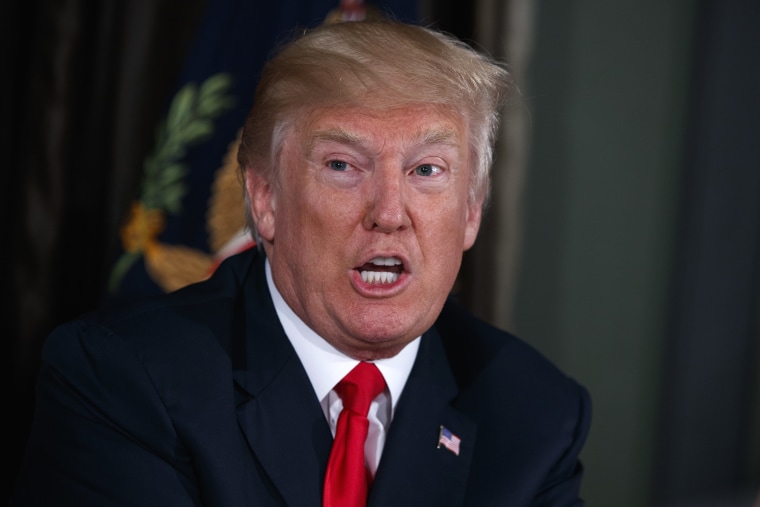Donald Trump interrupted his vacation yesterday to host an event on the opioid crisis at one of his golf resorts, delivering brief remarks on the deadly national emergency. The president reflected, for example, on preventing addiction by stopping the problem before it starts.
"If they do start, it's awfully tough to get off," Trump said. "So we can keep them from going on, and maybe by talking to youth and telling them, 'No good; really bad for you' in every way."
I'm going to hope there's more to the White House plan.
But there was another message in the president's remarks that struck me as notable:
"[F]ederal drug prosecutions have gone down in recent years. We're going to be bringing them up and bringing them up rapidly. At the end of 2016, there were 23 percent fewer than in 2011. So they looked at this scourge and they let it go by, and we're not letting it go by."
In context, it seems "they" referred to Obama administration officials.
There are a couple of core problems with the argument, aside from Trump's creepy preoccupation with trying to blame his predecessor for everything. The first is Barack Obama and his team didn't "let" the opioid crisis "go by"; they pleaded with Congress to make serious investments in the emergency, and by large, lawmakers balked.
The second is the subtle assumption Trump is making: he apparently sees the opioid crisis as a problem that can be solved through "prosecutions." In other words, this White House doesn't see a public-health emergency; it sees a test for law enforcement.
This does not bode well for the near future.
Postscript: Though this angle was largely overlooked yesterday, this entire subject is one Trump World should approach with some trepidation. The White House enthusiastically supported Republican health care legislation that would have made the opioid crisis vastly worse, and then endorsed deep Medicaid cuts, which would have had a brutal effect on substance-abuse treatments if implemented.
Making matters slightly worse, Trump's budget plan takes an "ax to mental health and substance abuse treatment programs."
If yesterday's event marks a change in direction for Trump and his team, I'm delighted. But let's not pretend the administration has been taking the crisis seriously all along.
